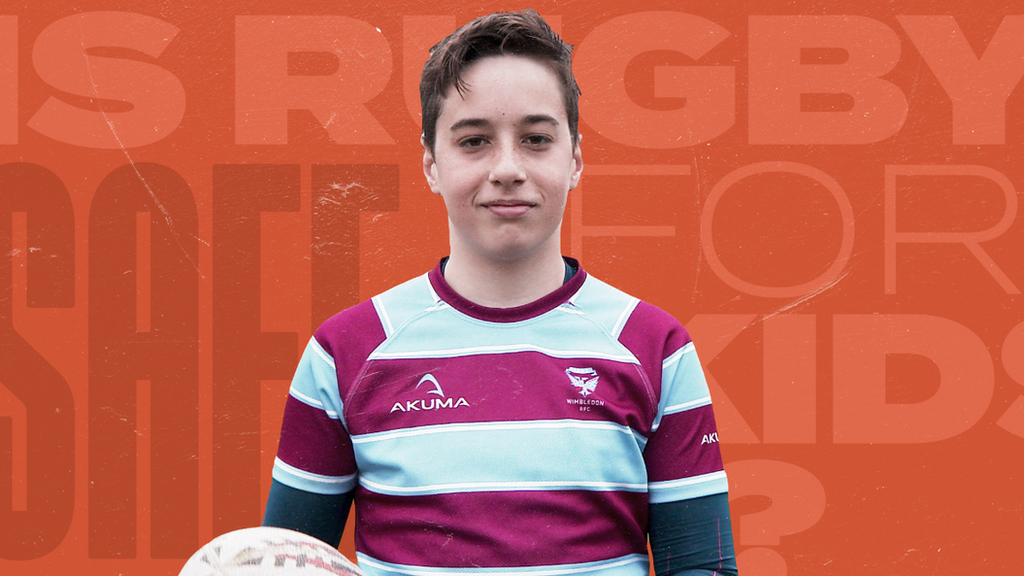Six Nations 2024: A guide to the teams and top players at rugby union's big tournament
- Published
- comments
The Six Nations in 60 seconds
The latest edition of the men's Six Nations is fast approaching, with the 2024 championship starting the first weekend of February.
The first game of the tournament is between two sides tipped to win this year's competition with France taking on Ireland in Marseille on Friday 2 February.
What is the Six Nations?
Six Nations: Ireland beat England 29-16 to win Grand Slam - highlights
The Six Nations is a rugby union tournament played every year between top countries in Europe.
The six countries who take part are England, Scotland, Wales, Ireland, France and Italy.
The Six Nations is the oldest international rugby tournament in the world. First held in 1883, it was originally called the Home Nations Championship, with England, Ireland, Scotland and Wales all taking part.
France joined the tournament in 1910, with five teams competing for 90 years until Italy were invited to join the competition in 2000.
Ireland, which includes players from both Northern Ireland and the Republic of Ireland in the team, are the current tournament holders having won the Six Nations in 2023.
Ireland
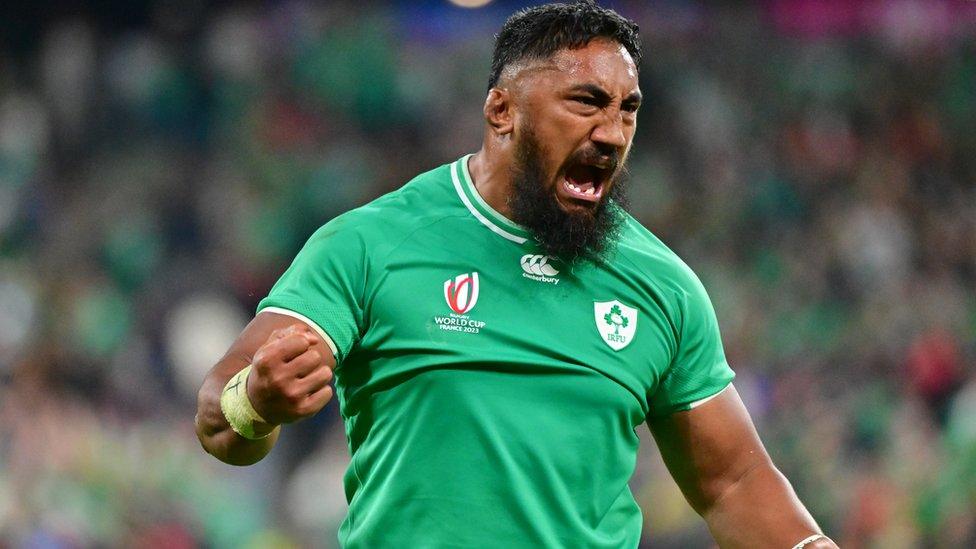
Ireland, who won the Six Nations last year, come into this year's tournament with something to prove, having gone into last year's World Cup with high expectations, only to lose out in the quarter-finals.
Ireland are the number two ranked team in the world, and despite a disappointing World Cup, the side won everything available during last year's Six Nations, not only winning the tournament but also the Grand Slam and Triple Crown trophies in the process.
Flanker Peter O'Mahony has replaced Irish legend Johnny Sexton as captain. Sexton retired from rugby following the World Cup in France.
England
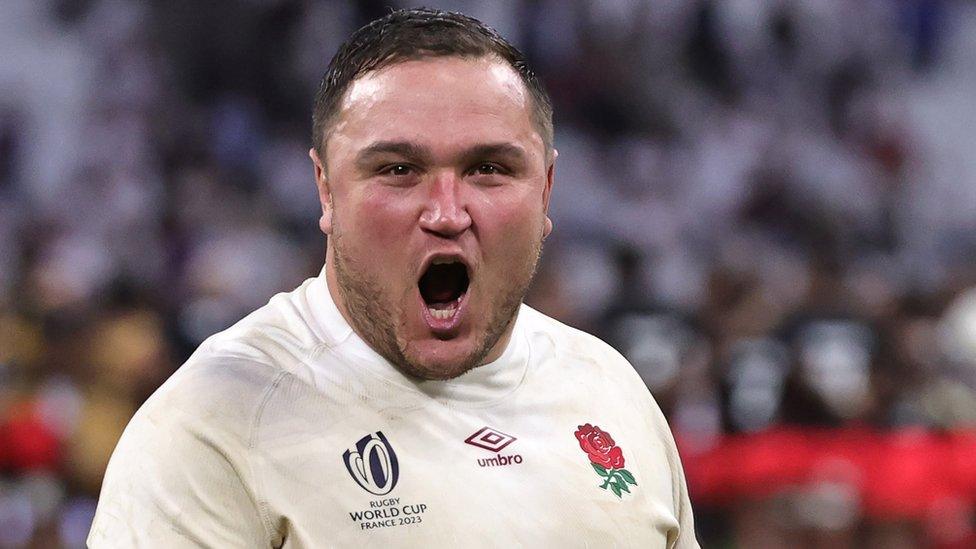
Jamie George is the new England captain for the Six Nations
England who got to the semi-finals - the furthest of any of the Six Nations sides - at last autumn's World Cup, are without several key players for this year's championship.
Tom Curry and Manu Tuilagi are both out due to injury. Previous captain Owen Farrell is unavailable, saying he wants to "prioritise his mental wellbeing", so Jamie George takes over the role, leading the squad as the new captain.
England, who finished fourth last campaign, have not won the tournament since 2020. They begin this year's Six Nations against Italy on 3 February.
Scotland

Scotland's last championship title was the 1999 Five Nations and their last two World Cup campaigns have ended at the pool stage.
Scotland's star player, Finn Russell (pictured) has been named co-captain alongside Rory Darge for the tournament, with Scotland getting under way against Wales in Cardiff on 3 February.
Wales

Dafydd Jenkins will lead Wales in the opener against Scotland
Wales have finished fifth in the Six Nations for the past two years having won just two of their last 11 games in the Championship.
Head coach Warren Gatland has been forced to pick one of the youngest squads of his career following retirements, transfers and injuries to key players.
The Wales side was also hit with the shock announcement that one of their star players, Louis Rees-Zammit has quit rugby union to try and play American football professionally in the NFL.
The Six Nations tournament rules
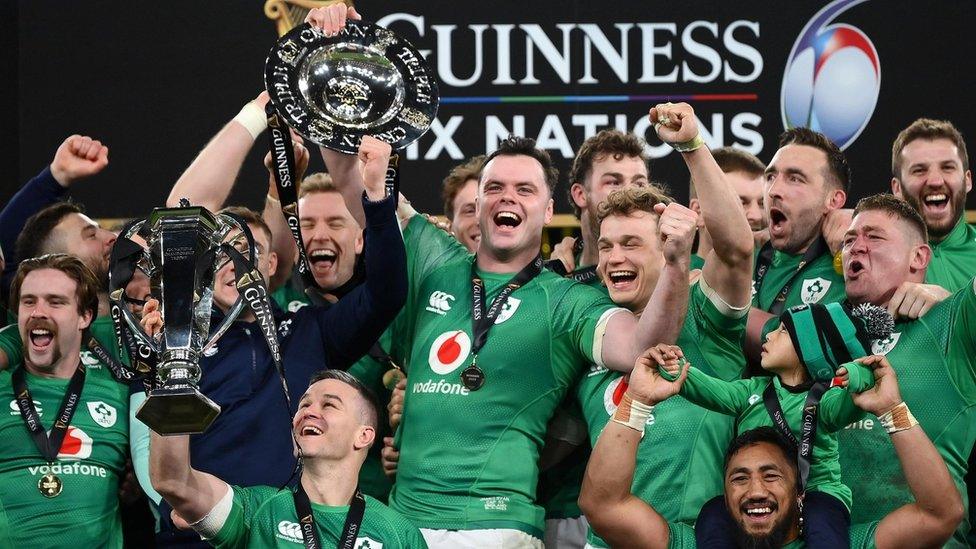
The sides all compete in one group with all the teams trying to win more points than the others. The team with the most points at the end of the tournament wins the championship.
Four points are awarded for a winning game and two for a draw. Bonus points are awarded for scoring four or more tries during a match or losing by fewer than seven points.
The rules of rugby union
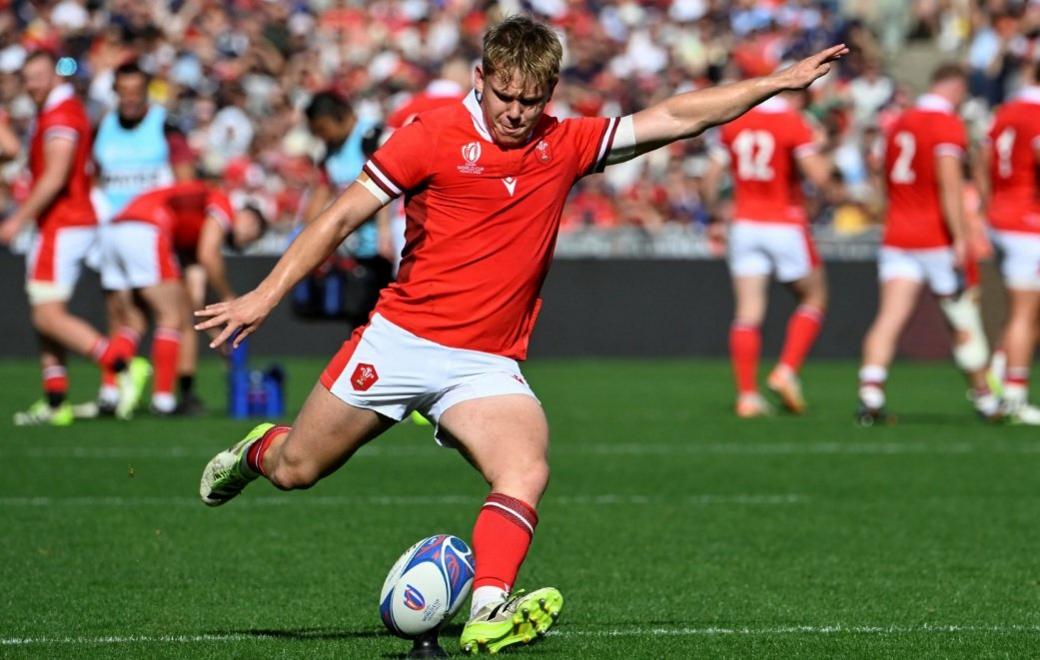
And if rugby union is still new for you, here are some basics.
The game is played by two teams of 15, with each team made up of eight forwards and seven backs.
Forwards are generally bigger and heavier, while the backs are faster and smaller.
A match is split into two 40-minute halves - the aim of the game is to score more points than the other team through tries, conversions, penalty kicks and drop goals.

The main way is by scoring a try - carrying the ball over the opponent's goal-line, which scores five points.
A successful try is awarded with an additional conversion opportunity (which sees a team attempting to kick the ball over the other team's goal-posts) for two points.
If the referee awards a team a penalty they are allowed to kick for the posts for three points.
Finally, a player is allowed to attempt a drop-goal in play for three points.
One of the most important rules of the sport is that the ball can only be passed backwards.
The trophies
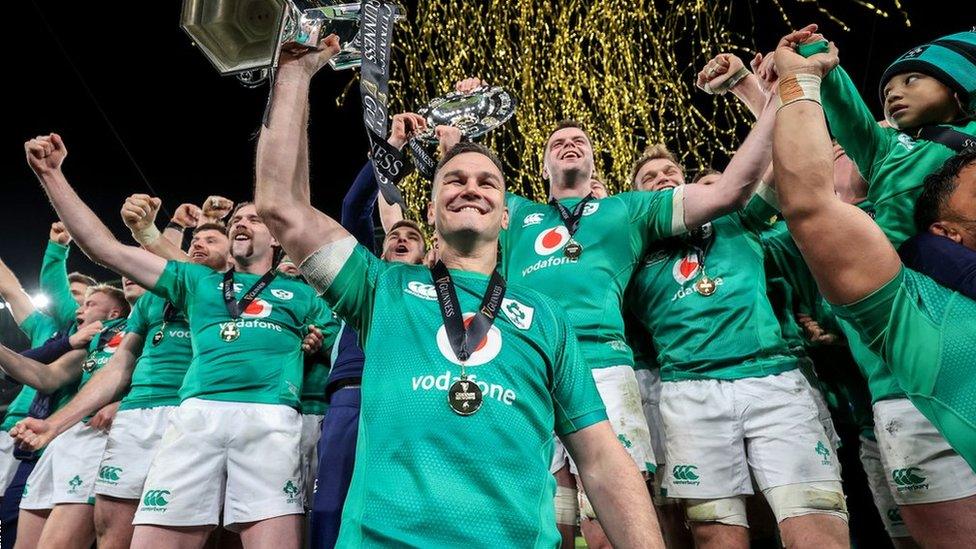
Ireland defeated England to win the Six Nations Grand Slam in 2023
There's not just the tournament winners title up for grabs, the Six Nations teams compete to win various other trophies.
The Grand Slam is the cherry on top of the cake for any team that has won the Six Nations, as this additional achievement is only awarded to a team that has won all of their matches during the tournament.
Although it's a title, there's not a physical trophy for the Grand Slam.
Ireland were crowned Six Nations Grand Slam champions in 2023 thanks to a bonus point 29-16 win against England in Dublin.
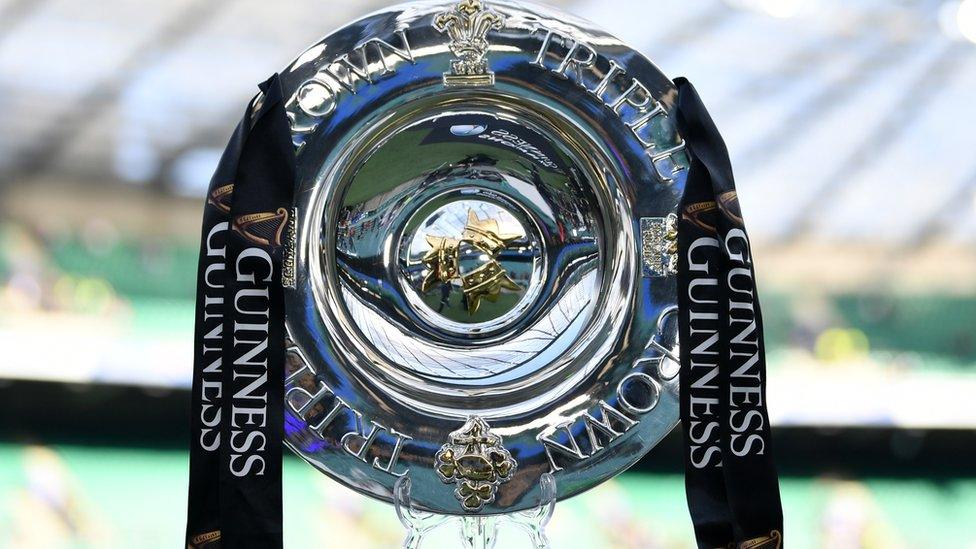
The Triple Crown is given to the team that defeats all the other original home nations and only England, Scotland, Wales and Ireland are able to win it.
Last year, with Ireland winning all their matches to secure the Grand Slam, they also won the Triple Crown.
Although it gives a team a great chance of overall success - winning the Triple Crown doesn't always mean you win the Six Nations.
In 2022 Ireland beat England, Wales and Scotland but didn't win the Six Nations tournament overall.

The four home nations also compete for various trophies, including the the Millennium trophy which has been given to the winner of the Six Nations match between England and Ireland since 1988. The trophy itself looks a little bit like a Viking helmet with horns.
The Centenary Quaich named after a Gaelic drinking dish, the 'Quaich' has been presented to the winners of the Ireland against Scotland since 1989 and won by Ireland in 2023.

The Doddie Weir Cup was established in 2018 and is presented to the winner of the game between Scotland and Wales. The cup is named after the former Scotland international lock Doddie Weir who died from motor neuron disease and was created to raise awareness of the illness. Scotland won the cup in 2023.
Scotland also won the Calcutta Cup last year - the oldest trophy in international rugby is presented to the winner of the Six Nations England vs Scotland match.
It's a tradition that dates back to 1879, when the cup was first contested between the two teams.
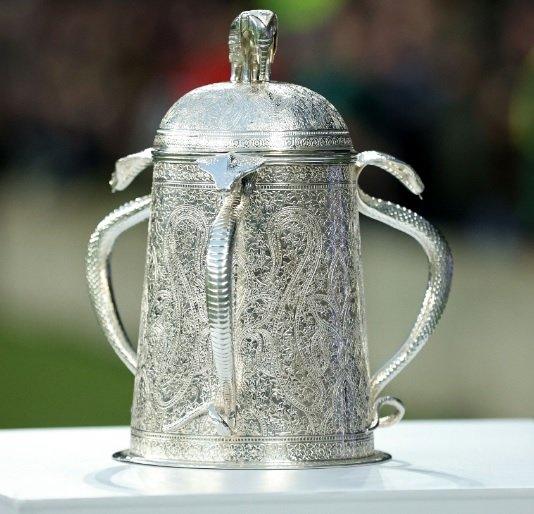
The Calcutta Cup is the oldest trophy in world rugby
- Published19 March 2023
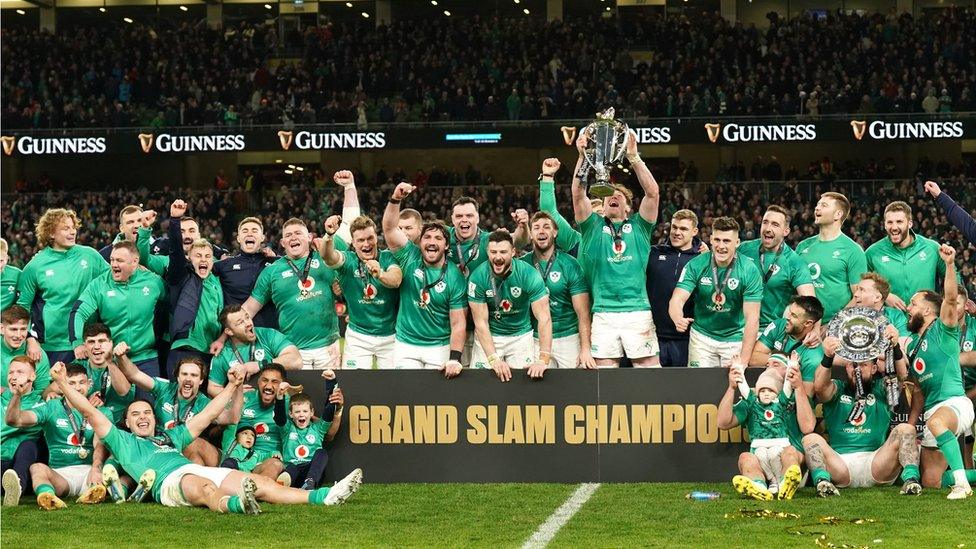
- Published29 October 2023
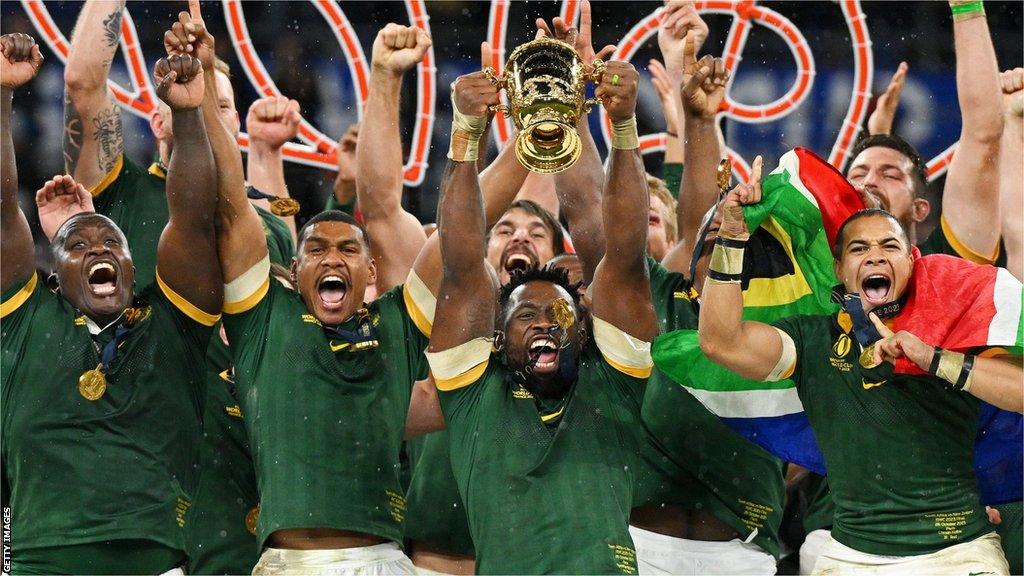
- Published30 September 2021
